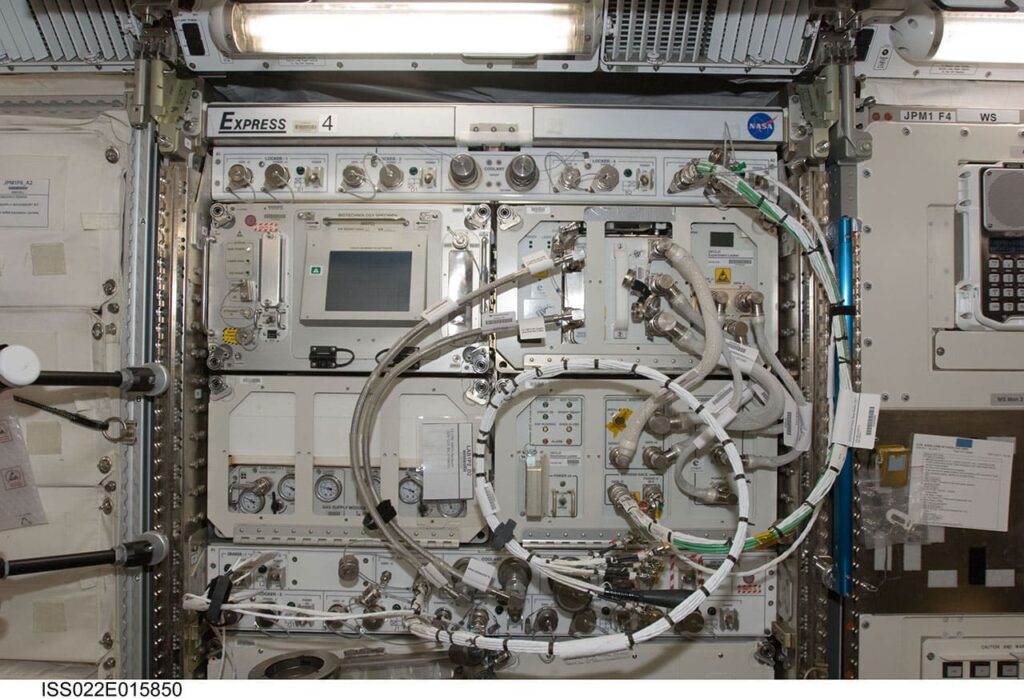Mobile SpaceLab
Facility Description
The Mobile SpaceLab is a tissue and cell culturing facility that launches and returns on International Space Station (ISSInternational Space Station) resupply vehicles to offer investigators a quick-turnaround, high-throughput platform to perform sophisticated microgravityThe condition of perceived weightlessness created when an object is in free fall, for example when an object is in orbital motion. Microgravity alters many observable phenomena within the physical and life sciences, allowing scientists to study things in ways not possible on Earth. The International Space Station provides access to a persistent microgravity environment. biology interrogations. The Mobile SpaceLab operates with autonomous microfluidic delivery of multiple reagents as well as automated brightfield and fluorescence microscopy. The Mobile SpaceLab can perform a biology experiment autonomously for up to a month on the ISS without the need for crew operations.
Availability:The general availability status of the facility. Please contact the facility manager
ISS Environment:The facility location (internal or external to the ISS.) Internal
Owner:The entity that owns the facility. HNu Photonics, LLC
Operator/Implementation Partner:The entity or ISS National Lab Implementation Partner that operates the facility.
HNu Photonics, LLC
Developer(s):The entity, or entities, that developed the facility.
HNu Photonics, LLC
Facility Manager:The name of the facility manager and their organization.
Caitlin O'Connell,
HNu Photonics, LLC
Manager Email:The facility manager's email address.
coconnell@hnuphotonics.com
Parent Facility:Any facility that is necessary to operate the facility described on this webpage. i.e., a parent facility is one level higher in the operational hierarachy.
Child Facility:Facilities that can be operated within the facility described on this webpage.
Sponsoring Space Agency:The government space agency that sponsors investigations that use the facility. NASA
Equipment Category:"The facility's ISS National Lab equipment designation type. Designations include:
1. ISS National Lab Commercial Service Provider (CSP) Facility
2. Support Hardware
3. Capability ISS National Lab CSP Facility
Additional Information:Additional resources to learn more about the facility.
iss022e015850 (12/30/2009) --- The image shows a front view of EXpedite the PRocessing of Experiments to Space Station EXPRESS Rack 4 (Rack 4,JPM/1F5) in the Japanese Experiment Module (JEM) Japanese Pressurized Module (JPM). Equipment visible in the EXPRESS Rack includes the Biotechnology Specimen Temperature Controller (BSTC) and the Gas Supply Module (GSM) support hardware for the CBOSS (Cellular Biotechnology Operations Support Systems) investigations, and the Device for the Study of Critical Liquids and Crystallization (DECLIC).

